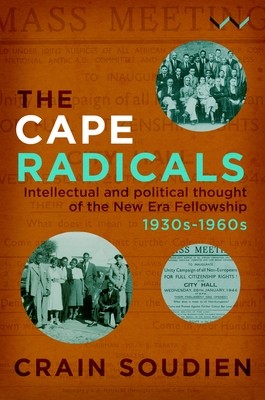
- We will send in 10–14 business days.
- Publisher: Wits University Press
- ISBN-10: 1776143175
- ISBN-13: 9781776143177
- Format: 15.2 x 22.9 x 1.4 cm, minkšti viršeliai
- Language: English
- SAVE -10% with code: EXTRA
Cape Radicals (e-book) (used book) | bookbook.eu
Reviews
Description
The history of a radical group of intellectuals who founded the New Era Fellowship, which shaped human rights precedents and social justice policy in South Africa
In 1937 a group of young Capetonians, socialist intellectuals from the Workers' Party of South Africa, embarked on a project they called the New Era Fellowship (NEF). In doing so they sought to disrupt and challenge not only prevailing political narratives but the very premises - class and 'race' - on which they were based. In different forums - public debates, lectures, study circles and cultural events - the seeds of radical thinking were planted, nurtured and brought to full flower. Taking a position of non-collaboration and non-racialism, the NEF played a vital role in challenging society's responses to events ranging from the problem of taking up arms during the Second World War for an empire intent on stripping people of colour of their human rights to the Hertzog Bills, which foreshadowed apartheid in all its ruthless effectiveness. In subsequent narratives of liberation their significance has been overlooked, even disparaged, and has never been fully understood and acknowledged. By shining a contemporary light on the NEF and locating its contribution in current sociological and political discourse, educationist Crain Soudien shows how its members were at the forefront of redefining the debate about social difference in a racially divided society.
EXTRA 10 % discount with code: EXTRA
The promotion ends in 21d.14:53:42
The discount code is valid when purchasing from 10 €. Discounts do not stack.
- Publisher: Wits University Press
- ISBN-10: 1776143175
- ISBN-13: 9781776143177
- Format: 15.2 x 22.9 x 1.4 cm, minkšti viršeliai
- Language: English English
The history of a radical group of intellectuals who founded the New Era Fellowship, which shaped human rights precedents and social justice policy in South Africa
In 1937 a group of young Capetonians, socialist intellectuals from the Workers' Party of South Africa, embarked on a project they called the New Era Fellowship (NEF). In doing so they sought to disrupt and challenge not only prevailing political narratives but the very premises - class and 'race' - on which they were based. In different forums - public debates, lectures, study circles and cultural events - the seeds of radical thinking were planted, nurtured and brought to full flower. Taking a position of non-collaboration and non-racialism, the NEF played a vital role in challenging society's responses to events ranging from the problem of taking up arms during the Second World War for an empire intent on stripping people of colour of their human rights to the Hertzog Bills, which foreshadowed apartheid in all its ruthless effectiveness. In subsequent narratives of liberation their significance has been overlooked, even disparaged, and has never been fully understood and acknowledged. By shining a contemporary light on the NEF and locating its contribution in current sociological and political discourse, educationist Crain Soudien shows how its members were at the forefront of redefining the debate about social difference in a racially divided society.


Reviews